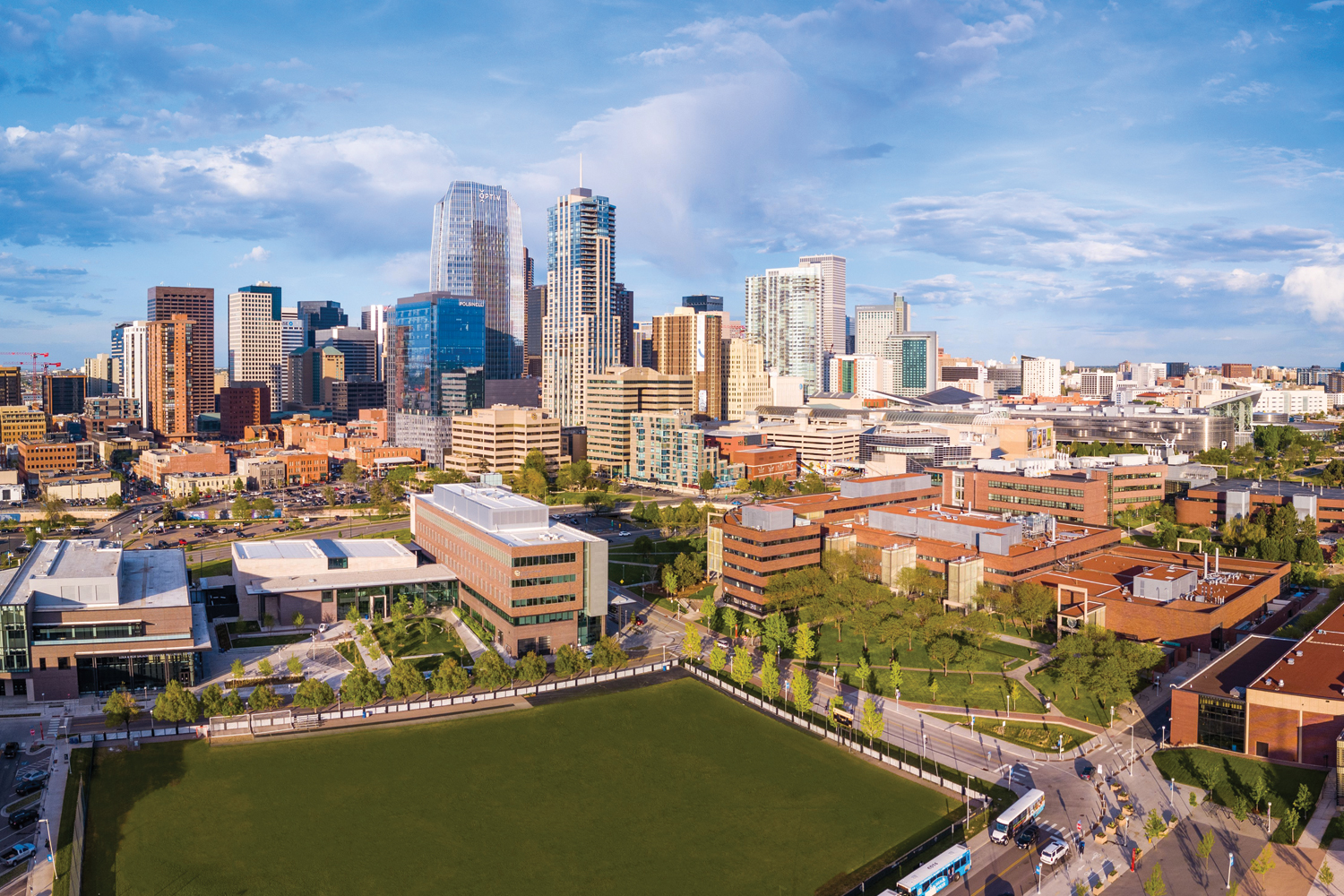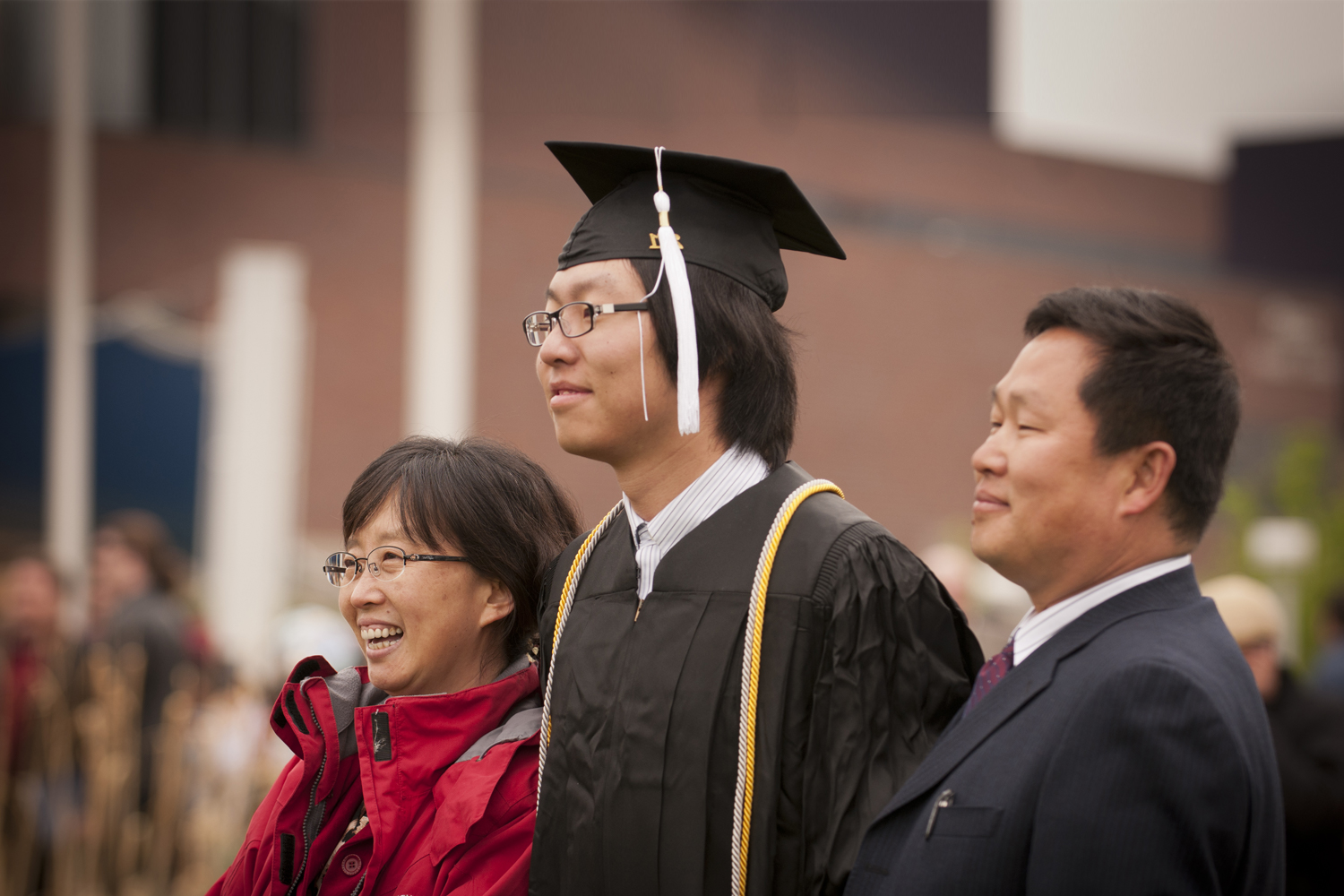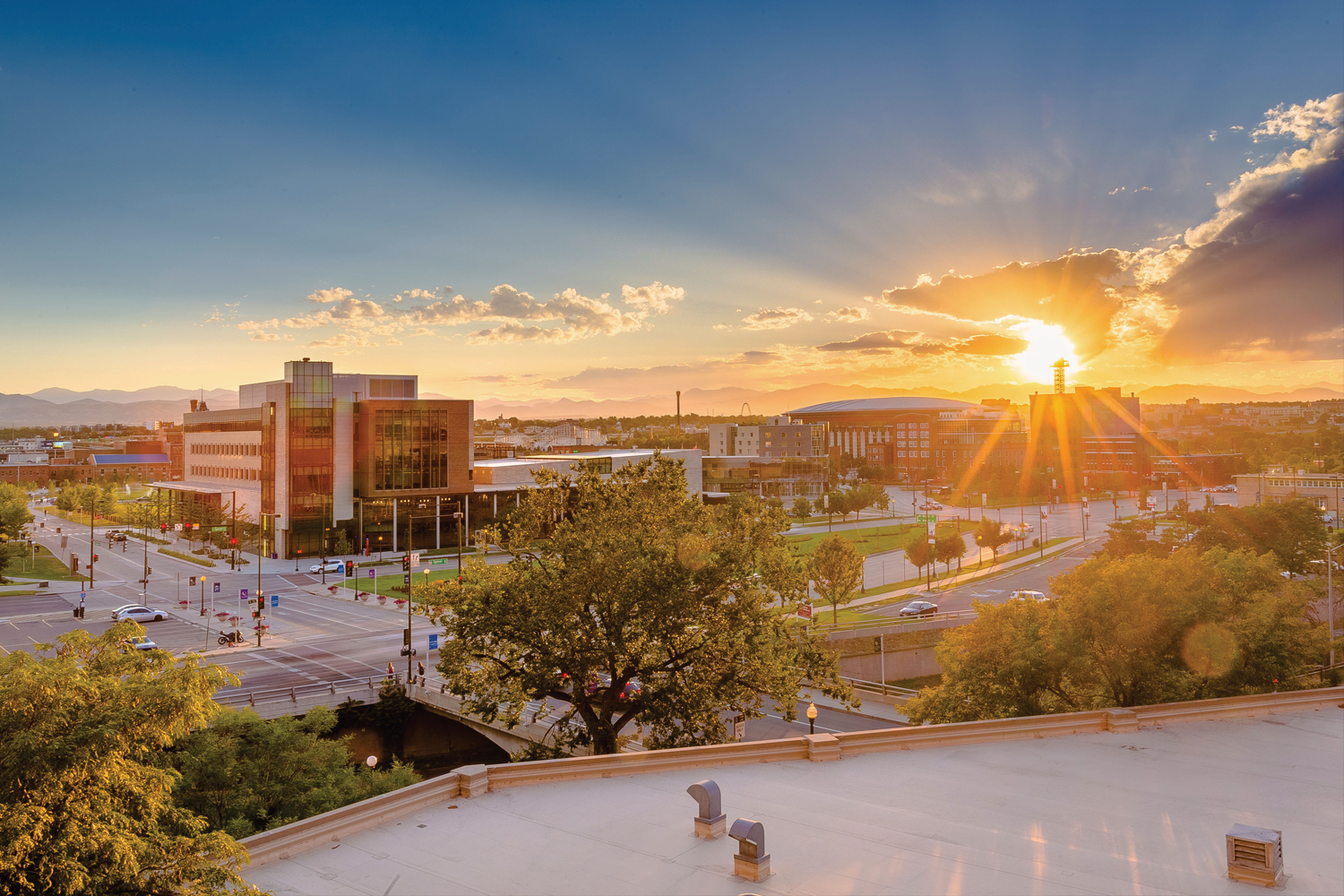What’s Going On? Immigration Updates & Town Hall
Presentation Engages International Students & Scholars at CU Denver | CU Anschutz Medical Campus

In today’s rapidly shifting landscape of immigration regulations, international students and scholars are seeking clear answers and accessible resources – and the International Student and Scholar Services team, University of Colorado Denver | Anschutz Medical Campus, is providing them.
What’s Going On? Immigration Updates and Town Hall was hosted on April 5th at CU Denver and April 9th at CU Anschutz Medical Campus by the Office of International Affairs for students, faculty, staff, and anyone interested in learning more. The speakers were Michelle Larson-Krieg, Director of International Student and Scholar Services and John Sunnygard, Executive Director, Office of International Affairs; with special guest speaker Lisa York, Managing Member of York Law, LLC. In 2008-2009, York served as Chair of the Colorado Chapter of the American Immigration Lawyers Association (AILA); she currently serves as Chair of the AILA National USCIS Field Operations Liaison Committee.
Michelle Larson-Krieg opened the presentation with a challenging topic, one that has captured interest throughout the United States as well as world-wide: travel bans.
“The Office of International Affairs (OIA) and International Student & Scholar Services (ISSS) at the University of Colorado Denver | Anschutz Medical Campus recognize there are some significant impacts of the executive orders that affect many in the international community,” she explained. “Questions arise weekly about the effects of the travel ban, which is in its third iteration; it is up for review again at the end of June.”
A number of factors can impact each individual’s visa status. However, in general, Larson-Krieg noted that F-1 and J-1 University of Colorado Denver international exchange students are not experiencing what is known as “extreme vetting.”
“The University is doing a number of different activities to support its international students,” said John Sunnygard. Within the last year, members of the OIA team traveled four times to Washington, DC, to visit the Colorado delegation and discuss visa and immigration issues. Larson-Krieg also advocates alongside other members of AILA.
Denver Mayor Michael B. Hancock’s International Advisory Committee includes an Education Pillar subcommittee that works on behalf of international students to ensure they can obtain visas, study, live, and work in the city. Sunnygard, who is on the subcommittee, noted that CU Denver Chancellor Dortothy Horrell is a strong advocate for student success and for the U.S. higher education campaign, YouAreWelcomeHere. At a recent meeting of the Metro Denver Economic Development Corporation, Chief Executive Officer J.J. Ament addressed the importance of having international students and professionals come to Denver – their professional skills are needed and appreciated.
“Denver businesses have not seen a slow-down of inbound international professionals, especially for the STEM (science, technology, engineering, math) industries,” said Larson-Krieg. “This includes H1-B’s and permanent residencies for the University of Colorado Denver | Anschutz Medical Campus; the University is included as a major employer.”
“A larger body of evidence is now required for documentation purposes,” said Lisa York. In her private legal practice, York has not seen major regulatory or statutory changes, but rather, changes in the ways that people are interpreting immigration services processes.
“My advice to those seeking entry into the U.S. for employment or studies is to not wait until the last minute before documents are due; apply early and apply often for H-1 and B-1 visas,” she explained.
Both York and Larson-Krieg explained that the changes have created a much greater workload for immigration officials and staff, which naturally results in longer processing times and waiting periods.
“The individuals who work in the Department of State are working diligently to manage increased workloads; many recognize and appreciate the value that international students and scholars bring to the United States,” said Larson-Krieg. “STEM extensions are still in effect; for specialty occupations, provide everything you can that might apply to a Request For Evidence (RFE).” Forgetting a single piece of paperwork could add months to the processing time.
More vetting has also been observed in customs and border situations. “If that happens to you as a CU Denver student, we want to know—please contact us,” said Sunnygard. “When we meet with the Colorado delegates, we let them know of any such cases.”
Larson-Krieg and York advised that international student and scholar travelers should carry all documents that they think might be required; documents should be originals, not copies. A list of these documents is being posted on the ISSS Website.
Questions came from the in-person as well as online audience.
- How do I file international taxes?
- If I have a multi-entry visa, can I return home for a brief visit, or should I not risk leaving the U.S. right now?
- As a student, I work on campus, but also am thinking about developing an online fashion business – is that a good idea or could it be problematic right now?
- I work for a non-profit healthcare company in my country and am interested in applying to a similar company as an H1-B – is there a minimum salary for this type of salary in America?
- Next year, I’ll graduate from CU Denver and would like to work for a year in my field; how do I apply for OPT (Optional Practical Training).
- Can you explain what is needed for a National Interest Waiver, and should my employer sponsor me?
“Keep detailed records about any work authorizations you have had, the names and contact information for your past and present employers, and the length of your employment for each job,” said Larson-Krieg. She explained that keeping paperwork from as far back as fifteen years ago may be necessary. “This applies to students and scholars from all global regions.”
“Think about where you are in your education and career, and what your professional goals are,” said Larson-Krieg. She reinforced the point that “even if you are currently on OPT, if you are seeking an H1-B visa, the ‘sooner the better’ goes for documenting and applying.”
Larson-Krieg, York, and Sunnygard all expressed the depth of commitment that the University of Colorado Denver and the City of Denver have made to international students, scholars, and businesses. Last year, 85,000 H!-B visas were available, and 199,000 petitions were received. Foreign nationals have specialized skills that are still needed to fill many U.S. jobs.
“Talk to your ISSS Specialist,” said Larson-Krieg. “They can help you as well as direct you to more resources.”
“Denver’s economy is thriving and continues to grow,” said Sunnygard. People continue to arrive from all around the world and join with their American peers in learning, developing careers, and building businesses.. “The attitude of the Colorado delegation in Washington, DC, is very supportive of the contributions made by international students and scholars.” He found this to be true of the Colorado representatives from both major political parties. “They have a keen interest in Colorado’s economy and in international students and scholars.”
Sunnygard asked everyone in the audience to raise their hand if they were a first-generation student whose parents came from another country, if their grandparents did, or if their great-grandparents did so. Almost one hundred percent of the audience raised their hands.
“When you look at the distance between today and our ancestors who came from other countries, it is not very far,” he observed. “The pendulum swings in this country, but there is still a wide base of support for the value that immigrants bring to America.”
Larson-Krieg agreed wholeheartedly. “Immigrants have continued to excel in our country; they excel as students, develop businesses, create jobs, and contribute to society. We are here to support you in any way we can.”
LEARN MORE
In addition to presentations and town halls, International Student and Scholar Services offers resources and information for the University’s students, scholars, faculty and staff. To learn more, visit online or make an appointment with an ISSS Specialist.
UPDATES
International College Beijing
-

Welcoming the Year of the Snake at CU Denver
Jan 29, 2025CU Denver students, faculty, and staff join in celebrating the Year of the Snake with a festive event.Full story -

Spring Semester Kickoff at CU Denver
Jan 21, 2025ICB students are welcomed to Denver and to campus for the Spring 2025 semester.Full story -

-

Year-Round Events Enjoyed By ICB Students
Aug 31, 2023Throughout 2023, ICB students are continuing to join in the fun of indoor and outdoor events hosted by the Office of International Affairs (OIA) and CU Denver. In the spring, two hundred thirty students, staff, faculty, and friends recognized the Lunar New Year at an event presented by OIA, the Asian Students Association (ASA), and the Intercultural Club Beijing. The Club’s members act as consultants for International College Beijing (ICB), both for American CU Denver students going to Beijing on study abroad programs and Chinese students coming to CU Denver.... read moreFull story







